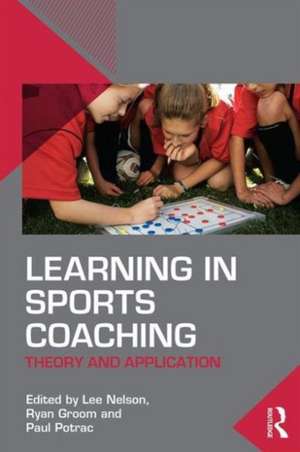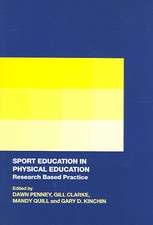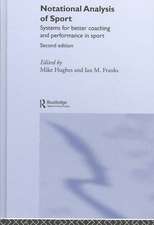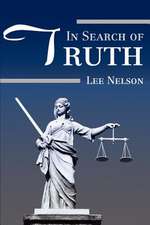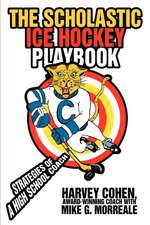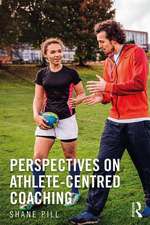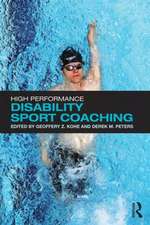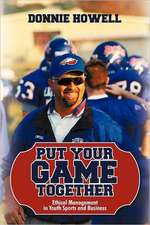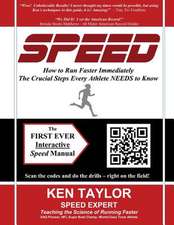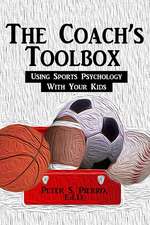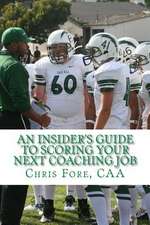Learning in Sports Coaching: Theory and Application
Editat de Lee Nelson, Ryan Groom, Paul Potracen Limba Engleză Paperback – 7 apr 2016
| Toate formatele și edițiile | Preț | Express |
|---|---|---|
| Paperback (1) | 355.94 lei 6-8 săpt. | |
| Taylor & Francis – 7 apr 2016 | 355.94 lei 6-8 săpt. | |
| Hardback (1) | 1001.84 lei 6-8 săpt. | |
| Taylor & Francis – 7 apr 2016 | 1001.84 lei 6-8 săpt. |
Preț: 355.94 lei
Nou
Puncte Express: 534
Preț estimativ în valută:
68.12€ • 70.85$ • 56.24£
68.12€ • 70.85$ • 56.24£
Carte tipărită la comandă
Livrare economică 15-29 aprilie
Preluare comenzi: 021 569.72.76
Specificații
ISBN-13: 9781138816572
ISBN-10: 1138816574
Pagini: 264
Ilustrații: 3
Dimensiuni: 156 x 234 x 20 mm
Greutate: 0.39 kg
Ediția:1
Editura: Taylor & Francis
Colecția Routledge
Locul publicării:Oxford, United Kingdom
ISBN-10: 1138816574
Pagini: 264
Ilustrații: 3
Dimensiuni: 156 x 234 x 20 mm
Greutate: 0.39 kg
Ediția:1
Editura: Taylor & Francis
Colecția Routledge
Locul publicării:Oxford, United Kingdom
Public țintă
Postgraduate and UndergraduateCuprins
1. Introduction: Towards a Theoretical Connoisseurship of Learning in Sports Coaching Part 1: Behaviourist and Social Cognitivist Theorists 2. Burrhus Frederic Skinner: Environmental Reinforcement in Coaching 3. Albert Bandura: Observational Learning in Coaching Part 2: Experiential Theorists 4. John Dewey: Experience, Inquiry, Democracy, and Community in Coaching 5. Donald Schön: Learning, Reflection, and Coaching Practice Part 3: Humanist Theorists 6. Abraham Maslow: Hierarchy of Coach and Athlete Needs 7. Carl Rogers: Person-Centred Learning in Coaching Part 4: Constructivist Theorists 8. Jean Piaget: Learning and the Stages of Athlete Development 9. Lev Vygotsky: Learning Through Social Interaction in Coaching 10. Yrjö Engeström: Coaching, Learning, and Activity Theory 11. Ivor Goodson: Narrative Coach Learning and Pedagogy Part 5: Critical and Post-Structural Theorists 12. Paulo Freire: Problem-Posing Coach Education 13. Jack Mezirow: Transformative Coach and Athlete Learning 14. Robin Usher: A Post-Structuralist Reading of Learning in Coaching Part 6: Social and Ethical Theorists 15. Herbert Blumer: Coaching and Learning as Symbolic Interaction 16. Jean Lave: Learning in Coaching as Social Praxis 17. Peter Jarvis: Lifelong Coach Learning 18. Nel Noddings: Caring, Moral Learning, and Coaching 19. Conclusion: Recognizing the Dimensions and Tensions of Learning in Coaching
Descriere
Facilitating the learning of others is at the heart of a coach’s work. Whether helping an athlete to implement changes in technique or deal with anxiety-provoking situations, learning defines coaching. This is the first book to provide a systematic introduction to learning theories – classic, critical and contemporary – and to explore their significance for coaching practice. By encouraging critical reflection on how we learn, and why we promote learning in particular ways, the book demonstrates the opportunities and challenges that are a feature of the pedagogical landscape in sport, helping the reader to articulate their own coaching philosophy and to become a more creative coach.
